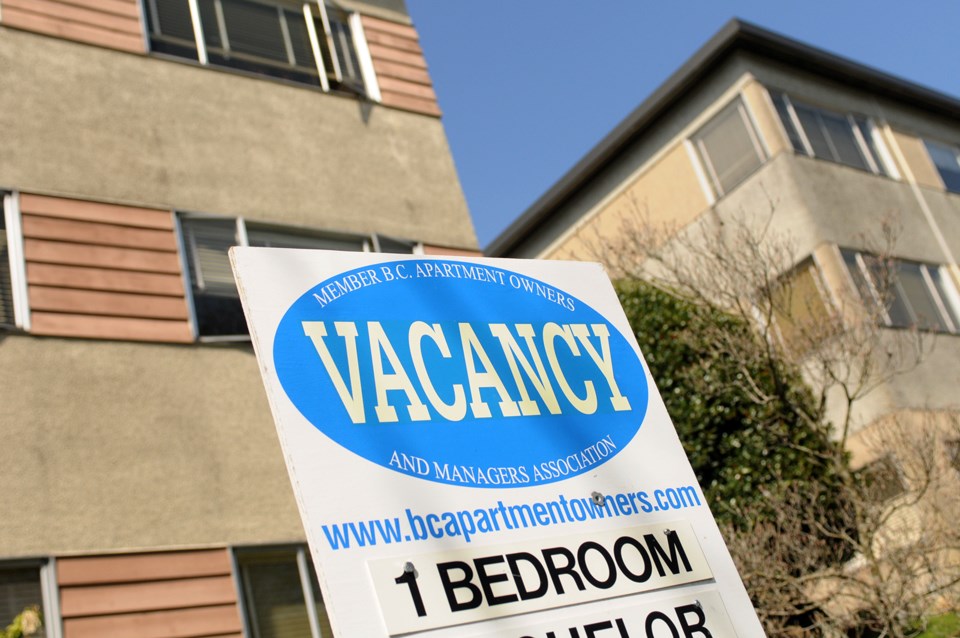The residential rental vacancy rate has eased slightly across Metro Vancouver, but that was not enough to stabilize prices, according to new annual data released November 28 by the Canada Mortgage and Housing Corporation (CMHC).
Metro Vancouver’s rate slackened to 1.0 per cent from 0.9 per cent last year, as new rental supply came on stream in some suburban municipalities. But this increase in supply was too meagre to help improve prices, as the average rent in the region – all apartment sizes combined – rose 6.2 per cent to $1,385. The elevated prices seen in new-build rental stock also contributed to this overall price jump.
Within Vancouver’s city limits, rental vacancies headed in the opposite direction. The federal housing agency said that, after easing slightly to 0.9 per cent in 2017, vacancies in Vancouver proper over the past year declined again to 0.8 per cent of total rental stock.
The average rent in Vancouver proper rose 6.1 per cent to $1,478 over the past year, said CMHC. One-bedroom units also rose 6.2 per cent to $1,411 on average, and bachelor/studio apartments also increased by 6.2 per cent to $1,198 on average.
Elsewhere in Metro Vancouver, a flood of new rental units in Burnaby pushed that city’s very low 2017 vacancy rate of 0.6 per cent all the way up to 2.0 per cent this year, making it the biggest driver of the region’s overall rate increase. The average rent in Burnaby rose 5.3 per cent to $1,238.
New Westminster also saw rates ease from 1.1 to 1.6 per cent, although average rents rose a considerable 8.1 per cent year over year to $1,206, with high-priced new-build apartments coming on stream.
North Vancouver (District), West Vancouver, Richmond, Maple Ridge/Pitt Meadows, White Rock and Delta also saw slight vacancy rate increases this year, but average rents continued to rise well above inflation.
Surrey and the Tri-Cities, on the other hand, joined Vancouver in a tightening rental market. Surrey’s rate fell to an incredibly low 0.4 per cent compared with 0.6 per cent last year. Surrey has recently seen the launch of the first new rental purpose-built building in the city in more than three decades.
The steepest annual rent increases were seen in Maple Ridge/Pitt Meadows, up 9.1 per cent year over year, and the Tri-Cities, up 9.0 per cent.
The CMHC said that a strong Metro Vancouver economy and the high cost of entry-level homeownership is fuelling rental demand.
Check out the to see vacancy rates and rental prices by city, neighbourhood, unit size and unit age.




